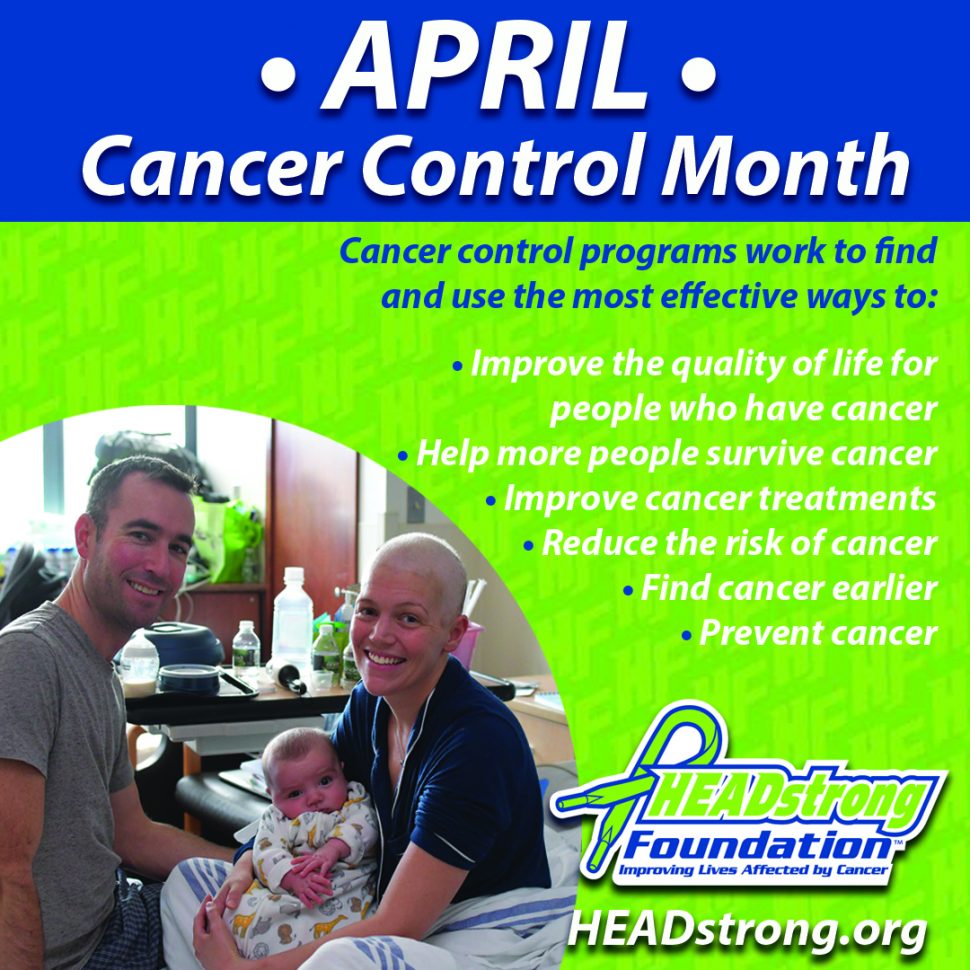National Cancer Control Month: 5 Ways to Take Control of Your Life and Reduce the Risk

April is a big month for cancer awareness, reeducation and observation. The first week of April is National Young Adult Cancer Awareness Week, and we also see National Minority Cancer Awareness and National Cancer Control Month recognized throughout April. National Cancer Control Month is incredibly important, even to the HEADstrong Foundation that focuses on direct services to the patients. We will continue to be an advocate for patients after their diagnosis, but recognize the importance of highlighting the goals of prevention, and advancements in the field. It also serves as a reminder to everyone to pay attention to health factors that can increase your risk and ways to effectively take control of your life and reduce your cancer risk.
In 2020, there will be over 1 million new cancer cases diagnosed in this country. But, over the last decade, we have seen mortality rates drop with each passing year. Even with all the positive gains that have been made up until this point, there is an enormous amount of work to be done to this disease. Today, we’re sharing what National Cancer Control Month focuses on and what you can do to reeducate yourself in the efforts of how to prevent and detect cancer.
What Is Cancer Control?
While you may have seen this term being used by organizations, media outlets and medical centers, cancer control focuses mainly on reducing the number of people who are diagnosed with cancer, preventing cancer, detecting it earlier, improving treatment and creating a better quality of life to those who have already been affected. Much like the emotional, financial, and residential support services offered by the HEADstrong Foundation, cancer control focuses on reducing the burden cancer tends to bring with it, looking at the number of cases and how they affect the country, community, individual and their loved ones.
What Can You Do?
The first step in prevention is reducing your risk through physical and environmental factors. Understanding risk factors and paying attention to them is extremely important. Some general guidelines to follow are:
- Keep a healthy weight
- Eat a well-balanced diet filled with fruits, vegetables and whole grains
- Limit your processed and preserved meat intake and try other forms of protein like seafood, eggs, nuts and lean meats like skinless chicken or turkey
- Limit alcohol and salt consumption
- Incorporating cancer fighting foods like colorful fruits and vegetables, eggs, fatty fish, beans and green tea into your diet may help lower your risk as well
Through foundations like our own, not only will you find the necessary resources on proper prevention tactics, but we also share many ways to help those who have seen and felt the effects of a cancer diagnosis through runs, events and donations. Whether or not you have lived through the devastating effects cancer can bestow upon a person and their family, National Cancer Control Month is a time for everyone to reevaluate and educate themselves on more important ways to lead a healthy, productive lifestyle. Together, we can move forward in preventing and reducing cancer risk. Volunteering, fundraising and financial gifts help us improve the lives of those who have been affected by cancer. For more information on how you can help, learn more about the HEADstrong Foundation on our website.

D
O
N
A
T
E